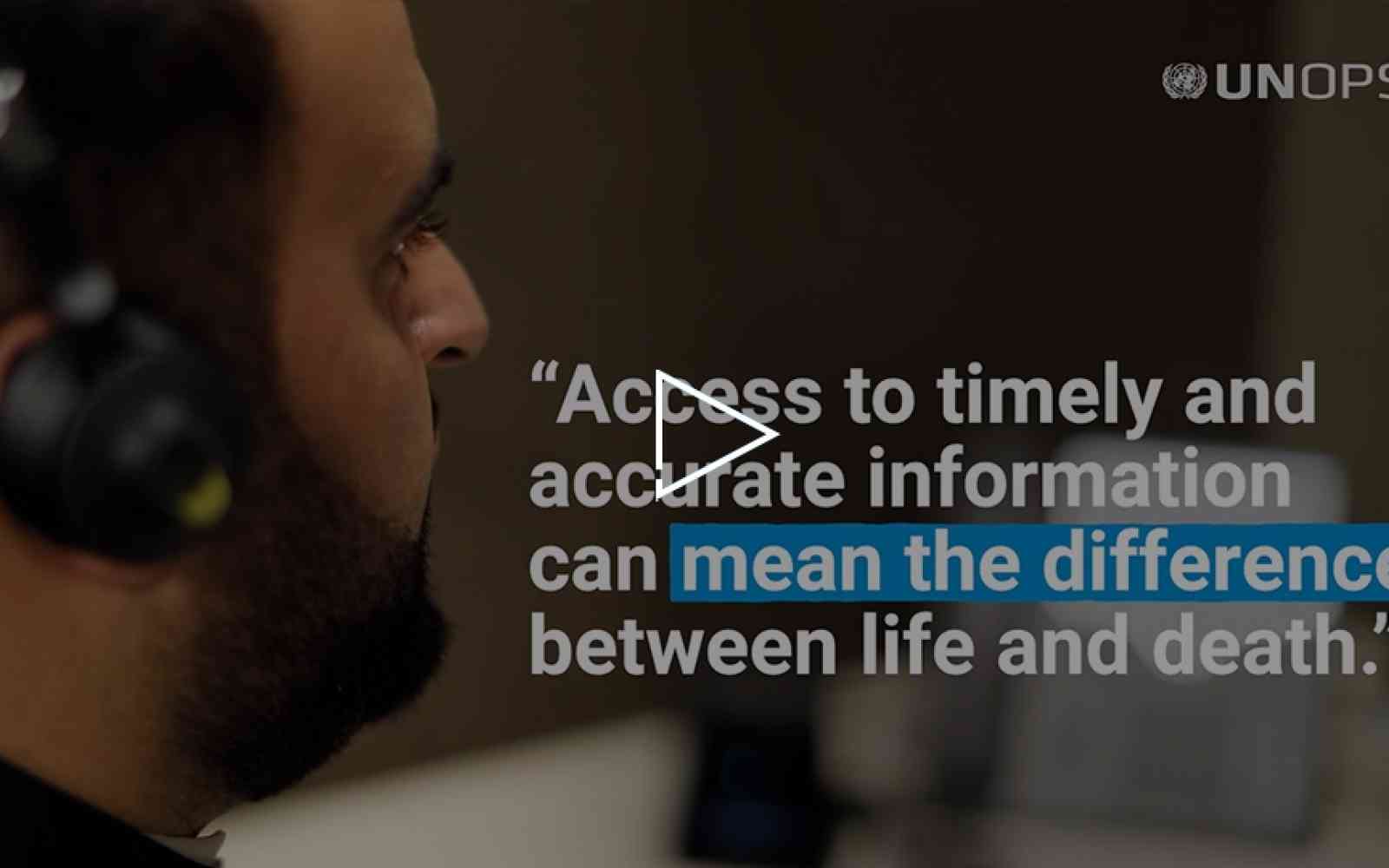The United Nations Office for Project Services (UNOPS)
Stories of resilience: Three lives, one project
In Afghanistan, one community-led project is touching millions of lives.
Afghanistan is one of the top 10 countries experiencing extreme weather patterns. This, against a backdrop of decades of war and numerous social and economic shocks, has left over 23 million people in need.
DisclaimerThree lives

Mumtaz, Kabul
“I used to be a teacher, as well as three of my daughters. But because of the restrictions, we cannot do that anymore.”
For decades Mumtaz’s income as a math and science teacher fully supported her family of five, following an illness that prevented her husband from working. Mumtaz’s three daughters followed in their mother’s footsteps, supporting the growing household.
Recent restrictions on education and employment opportunities for women and girls have rolled back two decades of gender rights advances. Past the sixth grade, girls are banned from accessing an education. For women, employment with non-governmental organizations is denied and they are wholly excluded from public office.
Overnight, Mumtaz and her daughters lost their source of income, joining 94 per cent of the women in the country outside the workforce.
Ahmad, Baghlan province
“The floods destroyed the canal I use to irrigate my lands so I could not cultivate anything and this put my family in a very difficult economic position.”

Approximately 85 per cent of Afghans rely on rain-fed agriculture for their livelihoods. Yet across this landlocked country, with temperatures that range between -20°C and +45°C, early frost and unpredictable precipitation patterns can greatly impact production – alter lands that so many depend upon to graze cattle and cultivate crops.
Before the 2023 floods, Ahmad grew enough to feed his family every day and sell some produce for an additional income.
Overnight, Ahmad's family joined the 15 million people across the country who are food insecure.

Zeyba, Khost province
“We are a total of seven members in our family. It has been three months since we have moved from Pakistan to Afghanistan after 40 years. I was even born in Pakistan. We have been working very hard for our family’s survival for the past three months.”
October 2023 saw the start of the forced repatriation of Afghans residing in Pakistan. Women and children – extremely vulnerable groups in Afghanistan – make up the majority of returning Afghans. Many of the people returning have never lived in Afghanistan, further complicating their adjustment and ability to integrate into one of the world’s least-developed countries – amid a major humanitarian crisis.
Overnight, Zeyba’s family joined over six million already internally displaced people in Afghanistan.
One project
Amid intensifying needs, the World Bank and the Afghanistan Resilience Trust Fund initiated the UNOPS-managed Afghanistan Community Resilience and Livelihoods Project (CRLP).
Managed by UNOPS, the initiative provides short-term employment, offering a lifeline for vulnerable households, with the benefits of the work activities extending to entire communities. Social grants are also extended to particularly vulnerable households unable to participate in work, prioritizing women-headed households, people with disabilities and those suffering from drug addiction.
Community engagement is a cornerstone of the project – and has long been a powerful vehicle for development interventions in Afghanistan. As such, the initiative invites Afghan people – via community representatives – to select work activities, manage labourers and provide channels for grievances.
And from a climate perspective, the project assesses any potential activity against key environmental and social considerations before a final selection is made.
A shared experience
Living in three different provinces, Mumtaz, Ahmad and Zeyba all found opportunities with the project.
Mumtaz
“This was a good chance to find a job in very difficult times for women. At least now we have a bit of time to see what else we can find. This is not a permanent solution and it will not solve all of our problems but we are happy as women that we can put food on the table.”

Mumtaz worked as a short-term labourer, helping to construct a green park in Kabul. She worked on-site helping cure cement and clean up after construction – earning approximately $6.30 a day for a month.
By early June 2024, sub-projects have included nearly 60,000 women labourers. While this is a high number, it still represents less than 12 per cent of the total urban labourers and close to 7 per cent of rural labourers. Looking ahead, the project is committed to reaching more women.

Ahmad
“Now that the canal has been fixed, I will be able to grow on my land again next year. I even helped to repair the canal, which I was happy about doing for my village.”
In his village in the Baghlan Province, Ahmad worked on a project that the local community council identified as being important for the lives of the people who lived there.
Since the start of the project, over 7,500 activities in urban and rural areas across the country have helped put in place infrastructure that allows local communities to better adapt to a changing climate. Work ranges from the construction of protection walls to the building and rehabilitation of canal networks.
Zeyba
“One of the CRLP projects was ongoing near my home. I sent my son to speak to the engineers in the project and tell our story. Then they welcomed him and arranged for him to join the work. At least it is a start for settling back in Afghanistan.”

Disclaimer
With the unexpected return of millions of Afghans from Pakistan – many vulnerable and in need – the resilience of communities and their ability to support those in need was tested. Within the CRL project, they rose to the challenge. Working as intended, the community representatives recognized the vulnerability of this incoming group during their needs mapping. Returning Afghans were able to connect within their new community and register as part of the project.
More about the project
The Afghanistan Community Resilience and Livelihoods Project is a $419 million initiative funded by the World Bank and the Afghanistan Resilience Trust Fund, managed by UNOPS. Working directly with more than 9,000 communities, the project is set to benefit over 14 million Afghans, across 10 cities, 29 provinces and 98 rural districts. It aims to create approximately 42 million labour days and support more than 1.3 million households.
Read more about the project via the World Bank.















